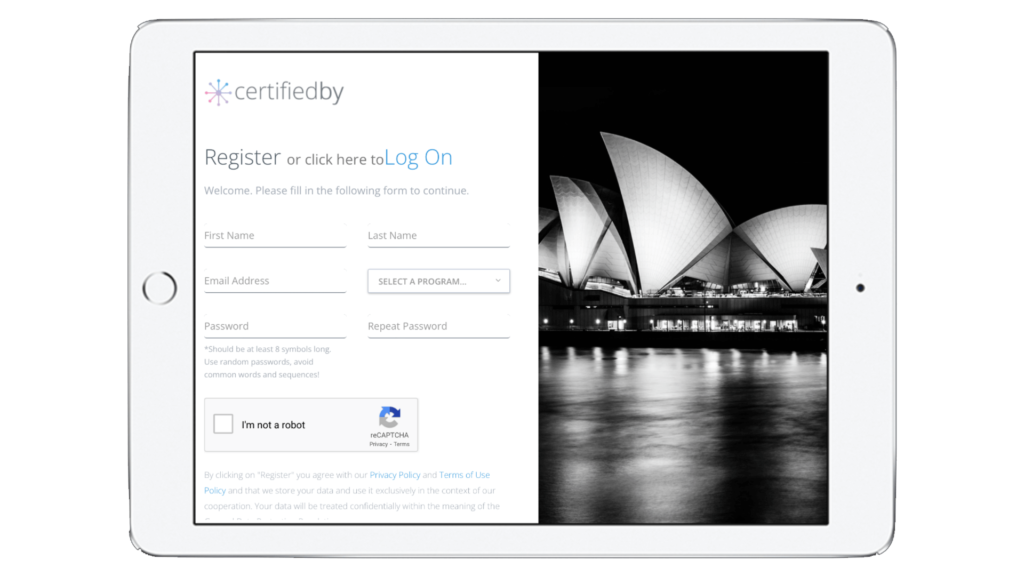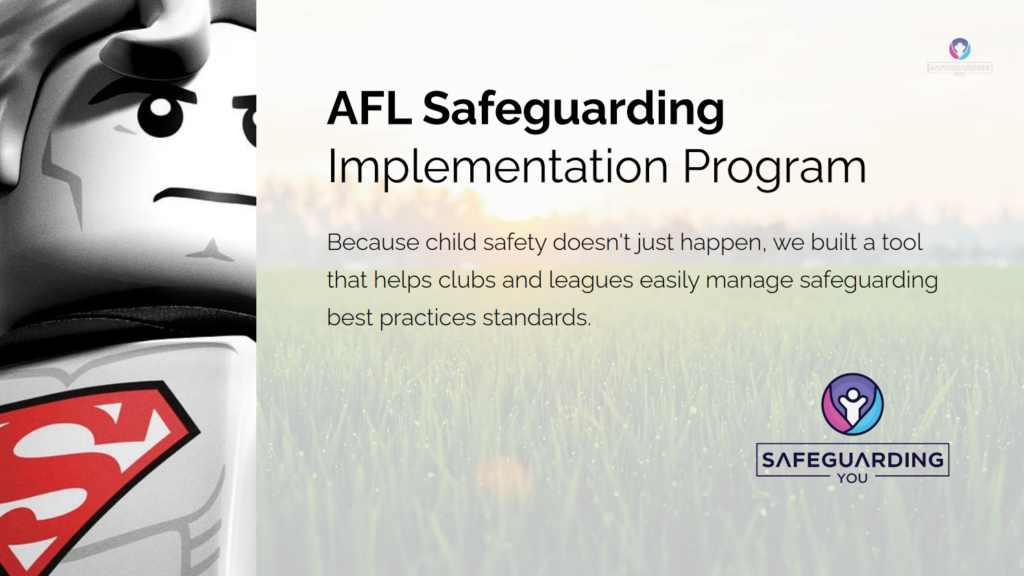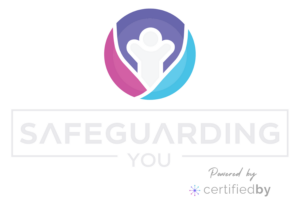AFL Safeguarding
Implementation Program
Because child safety doesn't just happen.
Assess, Report, Improve & Certify... to Power Growth
AFL Safeguarding Implementation Program
Amateur AFL football clubs face the significant challenge of navigating the complexities of child safety and safeguarding responsibilities. Adhering to the Victorian Child Safe Standards can be daunting, with clubs often lacking the resources or knowledge to ensure they fully comply, leaving them vulnerable to risks and legal repercussions.
Without a clear, structured approach to managing these critical responsibilities, clubs not only jeopardise the safety and wellbeing of their young members but also risk damaging their reputation and trust within the community. The stakes are high, with potential legal, ethical, and operational implications looming over clubs that fail to meet the necessary standards.
Safeguarding You’s “AFL Safeguarding Implementation Program” offers a lifeline. Our program simplifies the process through a comprehensive assess, report, improve, and certify methodology. We start by evaluating your current practices against the Victorian Child Safe Standards, then provide detailed reports with actionable insights, guide you through targeted improvements, and finally certify your club’s compliance.
Proudly Supporting…



















How it Works

REGISTER
Simply click the START NOW button at the top of this page to start your program.
IMPROVE
For smart recommendations, supporting information and helpful resources, subscribe to the Action Management Module (see more).
CERTIFY
Evidence results with a Program Review and Certificate of Assessment to share with relevant stakeholders (see more).
ALL PROGRAMS include access to a digital library of amazing tools & resources
This Program Includes
-
7 Components
-
FREE Smart Self Assessment
-
FREE Risk Report: High-Med-Low
-
Action Management Module
-
Digital Library of Resources
-
24/7 Access: Mobile & TV
Program Modules
1. Awareness
2. Leadership
3. Rules
4. People
5. Education
6. Environments
7. Child Safety Risk Assessment
AFL Safeguarding Survival Guide
Tailored for club CSO’s, this guide cuts through the noise to deliver actionable strategies in Child Safeguarding.
More than just advice – it’s a blueprint for success. Avoid pitfalls, make smart decisions, and drive your organisation towards safer standards and sustainable growth. Don’t miss out on this opportunity to turn information into power.
The AFL Safeguarding Survival Guide

Don't Make a Fatal Mistake!
Disclaimer 🤚
We’ve put our heart and soul into building something to help millions of Startups & SMEs around the world.
We’ve done a lot right and made mistakes along the way, cause no one ever said #RegTech or startup risk management was easy.
Rest assured we are leveraging the brightest minds, deepest resources, connected partnerships and hunger for growth to develop a better product every day for you.
With that being said… In no event shall Safeguarding You (powered by Certified By), its affiliates, partners, or licensors be liable for any direct, indirect, incidental, special, consequential, or punitive damages, including but not limited to, lost profits, lost data, business interruption, or other losses arising out of or in connection with the use of, or inability to use, the Safeguarding You platform or any content, advice, or recommendations generated by the platform.



